Dear Friends,
One of the things I love about writing is that it allows me the time and space to formulate exactly what I want to say, to excavate the words that best reflect my thoughts. It’s a gift that speaking off-the-cuff does not afford. In social situations, I can be shy to the point of invisibility, or I become a rambling mess, blathering on like a human who just discovered speech. I rarely seem to strike that perfect balance between speaking and listening.
Indeed, there is an art to conversation, a medium we must enter without the aid of a dictionary or a thesaurus, without fact checkers or the convenience of researching in real time any point we wish to make. It’s as delicate as a dance, partners alternating who leads and follows. It’s a meeting of minds and bodies, our voices buttressed only by what we’ve read and felt and experienced.
And yet, a conversation bears possibilities that mere writing lacks: the ability to explore an idea in another’s company, molding and remolding it until we arrive at something like an epiphany. Where a writer’s inner voices quell and judge, the voice of a kindred human can lift and inspire us, expanding our perceptions in the best possible way. A friend or partner can draw out what is hidden, even to ourselves. And we can respond in kind.
The end result is the creation of a third voice, the specter of a poet in the space where two humans meet. Merging our insights with those of another, we can forge new understandings of the world, new models for how we can lead our lives. This is that third voice, born of the electricity we spark in a conversation.
We yearn for connection, for community. We long for voices that can guide us to a healthier, more fulfilling life, that offer hope and healing to a dying planet. But, where do we find these voices? They stir in books and poems, echo in the quiet stacks of libraries. And, increasingly, they impart wisdom through millions of podcasts.
Introducing the Disabsurdity Podcast!
It is with love for the power of conversation that I present a podcast of my own. I call it Disabsurdity, a term that to me encapsulates the rich, multi-layered experience of people with disabilities, a minority at the margins of a society that’s often inaccessible and exclusive. A minority so universal it intersects every other identity marker on the planet. A minority that embodies our mortality, that reminds us that if we live long enough, we will all become intimately familiar with disability—because we will inevitably acquire one.
Yet embedded in that bleak reality is a radical hope. Seeing others thrive, through limitations and loss, empowers us to reimagine what disability means. It emboldens us to accept our frailties, to live each day with gratitude and wonder. This is why it’s so important that we hear from writers and thinkers with disabilities.
With the Disabsurdity podcast, I intend to bring these voices to you. Through conversations on mindfulness, accessibility, and a host of other topics, I hope to share the beauty and wonder of a universal human experience.
Episode One: Callahan Gobble
My first guest is Indianapolis-based poet, writer, and podcaster, Callahan Gobble (formerly Tyler, also known as Your Buddy T-GOB). Callahan is a wonderful friend, a delightful poet, and an ardent mindfulness advocate. (Listen to our conversation for a more thorough introduction of Callahan and his work.)
Callahan and I cover a lot of ground in this conversation. We discuss poetry and mental health practices, creativity and technology, our mutual appreciation of birds. Then we read six poems, four of our own and two by some of our most beloved poets. (You'll also hear a few snippets of original music by yours truly!)
I'll cut the intro here, so you can start listening!
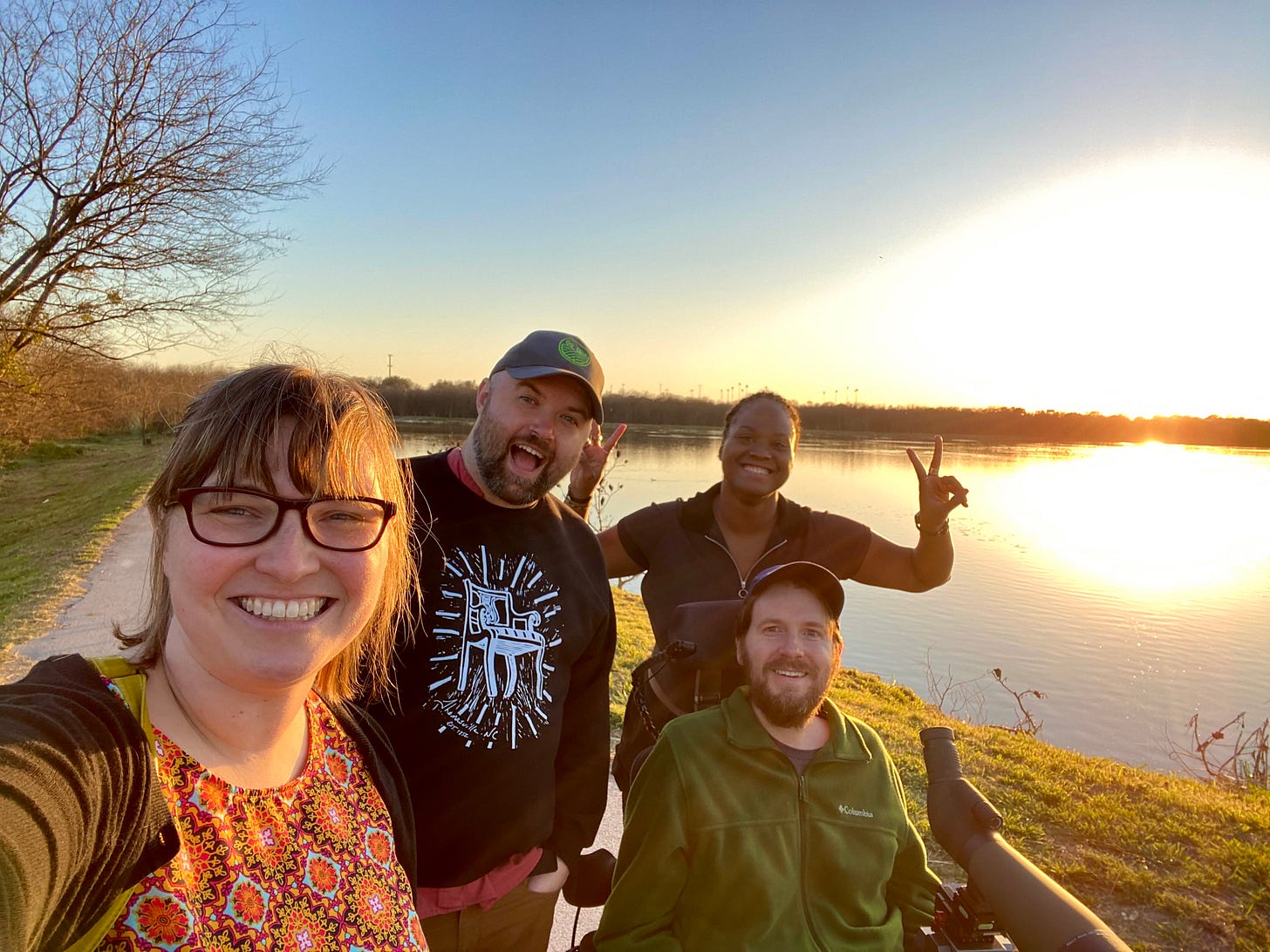
The Poems
For those of you who love reading poetry as much as you love hearing it, I've included the featured poems below.
Enjoy the poetry and the birds (and the podcast),
Eric
BLACK VULTURE IS PASSING ME FOR THE MOON by Eric Clow Oh, pale-faced balloon! Oh, lunar carrion! Oh, lonely Cheerio drowning in blue milk, what do you have That I don’t? Impossible shadows, a curious wind, Ruffled footsteps, which won't blow away? Crumbled Rocks and cheese for guts, aperitif for the gods? Of course You fly, or rather float, circles around our pond. You catch Sling-shotted stones like a pock-marked teen, frowning For one shore while you smile for the other—two-faced yet Somehow sincere. Is that why these jazz-handed buzzards Salivate for you? Have I made myself too easy, tilted Belly-up and cruel? I’ll trade you flesh for a glimpse Of the morning’s soft light and charms—that stillness Even my voice cannot reach. Then, you'll be the stars, and I’ll be The moon and every beast will howl at our astral love.
BLACK VULTURE PASSING ME DOES MOON ME by Tyler Gobble Oh sonnet, come here! Oh blanket of fear! A guru draped across my hankered lap! Oh burgundy! Oh funny, weed makes me More confident to sit turned with my back To the open field! Oh friend of quiver & poems, achy in Indianapolis! Oh we all once rode horses down south! Oh oh The lake mocks the sky, snake in tree surprise! Oh beehive in the distance, leave me be! Oh a sound ricochets off the sunrise! Oh shack ransacked & about to fall down Since I was a young’un! Oh pride, my vice! Oh feather eclipse! Oh feather eclipse! Oh black vulture passing me does moon me!
OH CURE by Tyler Gobble In the parking lot, the lines are faded Thus the rules are blurred. Who goes which a-way. When does one stop. Where is best I leave this Decaying body of rubber & rust. There I was exiting & you entered Literally & figuratively Us intersecting perpendicularly Till you decided, last second, to swerve Towards me, to go from whence I came, or However a better poet might write it. I slowed, waited, but you, in your chrome haste In your self-consciousness, in the swift way Blood randomly boils sometimes–the parking Lot, after all, is not more than a giant Skillet sizzling our scraps & our scrapes Together like so–you became enraged Mouthing harsh words with squashed thuds for endings Throwing up that gesture we call “The Bird.” Its sort would be both nuisance & eye sore Something equipped with a loud caw & some Irrational confidence encased in Thick, dark feathers. For a split-second, I Craved to plum pluck you alive. Instead, I Remembered being kind is not some great Act of the future, not some gesture flung When I feel better, that never-coming Monday when my eyelids sag less, my moods Droop & curl with less woe. Now is as good A time as any to wave sincerely. To offer back my own bird. Here. It is A cockatoo I’ve been sculpting from hope & gratitude & of course, some feathers.
A HEART BECOMES A BIRD. THAT’S HOW - for Susie Angel - by Eric Clow A heart becomes a bird. That’s how It starts: a swallow flits impossible feats Over fields of dead corn, or maybe a fly- Catcher hunts from the rib cage—rust wings And a lemon belly in pursuit of a beetle. Watch it weave through the aortic Canopy, alight atop its sternal lookout Eyeing some cellular prey. I used To believe we were all a kind of bird, rising Restlessly on the wind, poor feathered thing Flying home to home like a child Of divorce, but now I see us pecking Cracks in a calcified egg, then dropping With a thud to a flightless world, And, if we’re lucky, fluttering back up— Crusty, yellowed leaves reunited With the branch, and in their green Reverie, forgetting they were ever earth- Laden. And though I sense a certain clutter, Shifting principles like piles of debris, I still cling To that promise. What I mean to say is: The heart was always a bird, and deep Within its cavity, life begins again.
This Morning by Mary Oliver This morning the redbirds’ eggs have hatched and already the chicks are chirping for food. They don’t know where it’s coming from, they just keep shouting, “More! More!” As to anything else, they haven’t had a single thought. Their eyes haven’t yet opened, they know nothing about the sky that’s waiting. Or the thousands, the millions of trees. They don’t even know they have wings. And just like that, like a simple neighborhood event, a miracle is taking place.
The Great Blue Heron of Dunbar Road by Ada Limón That we might walk out into the woods together, and afterwards make toast in our sock feet, still damp from the fern’s wet grasp, the spiky needles stuck to our legs, that’s all I wanted, the dog in the mix, jam sometimes, but not always. But somehow, I’ve stopped praising you. How the valley when you first see it—the small roads back to your youth—is so painfully pretty at first, then, after a month of black coffee, it’s just another place your bullish brain exists, bothered by itself and how hurtful human life can be. Isn’t that how it is? You wake up some days full of crow and shine, and then someone has put engine coolant in the medicine on another continent and not even crying helps cure the idea of purposeful poison. What kind of woman am I? What kind of man? I’m thinking of the way my stepdad got sober, how he never told us, just stopped drinking and sat for a long time in the low folding chair on the Bermuda grass reading and sometimes soaking up the sun like he was the story’s only subject. When he drove me to school, we decided it would be a good day, if we saw the blue heron in the algae-covered pond next to the road, so that if we didn’t see it, I’d be upset. Then, he began to lie. To tell me he’d seen it when he hadn’t, or to suppose that it had just taken off when we rounded the corner in the gray car that somehow still ran, and I would lie, too, for him. I’d say I saw it. Heard the whoosh of wings over us. That’s the real truth. What we told each other to help us through the day: the great blue heron was there, even when the pond dried up, or froze over; it was there because it had to be. Just now, I felt like I wanted to be alone for a long time, in a folding chair on the lawn with all my private agonies, but then I saw you and the way you’re hunching over your work like a puzzle, and I think even if I fail at everything, I still want to point out the heron like I was taught, still want to slow the car down to see the thing that makes it all better, the invisible gift, what we see when we stare long enough into nothing.


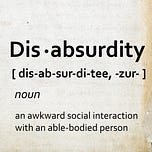


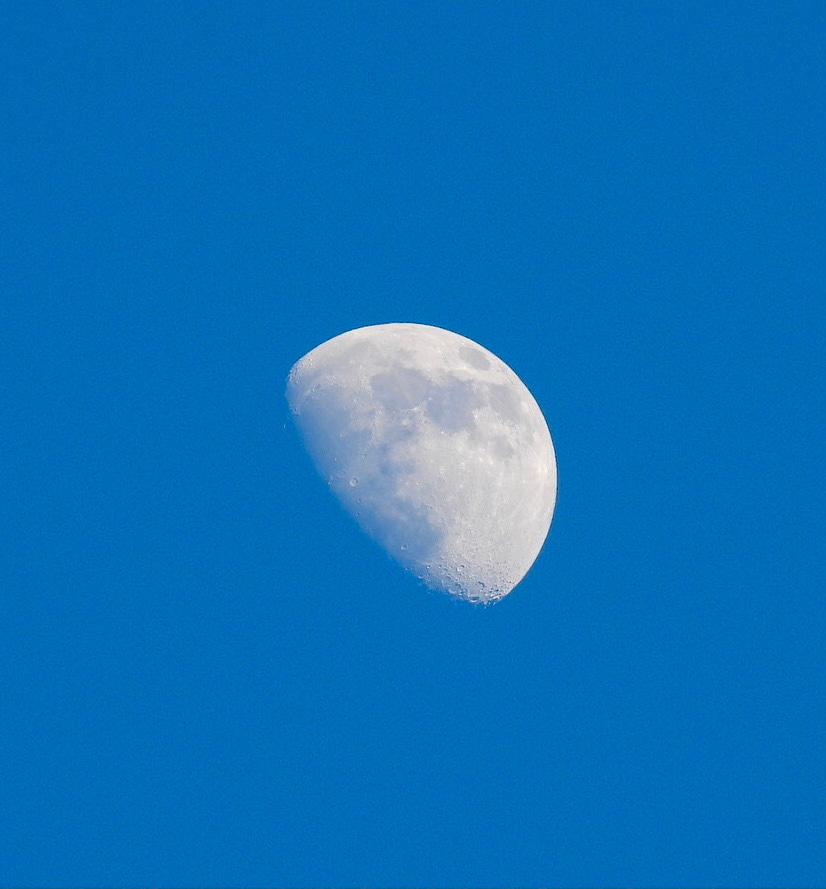
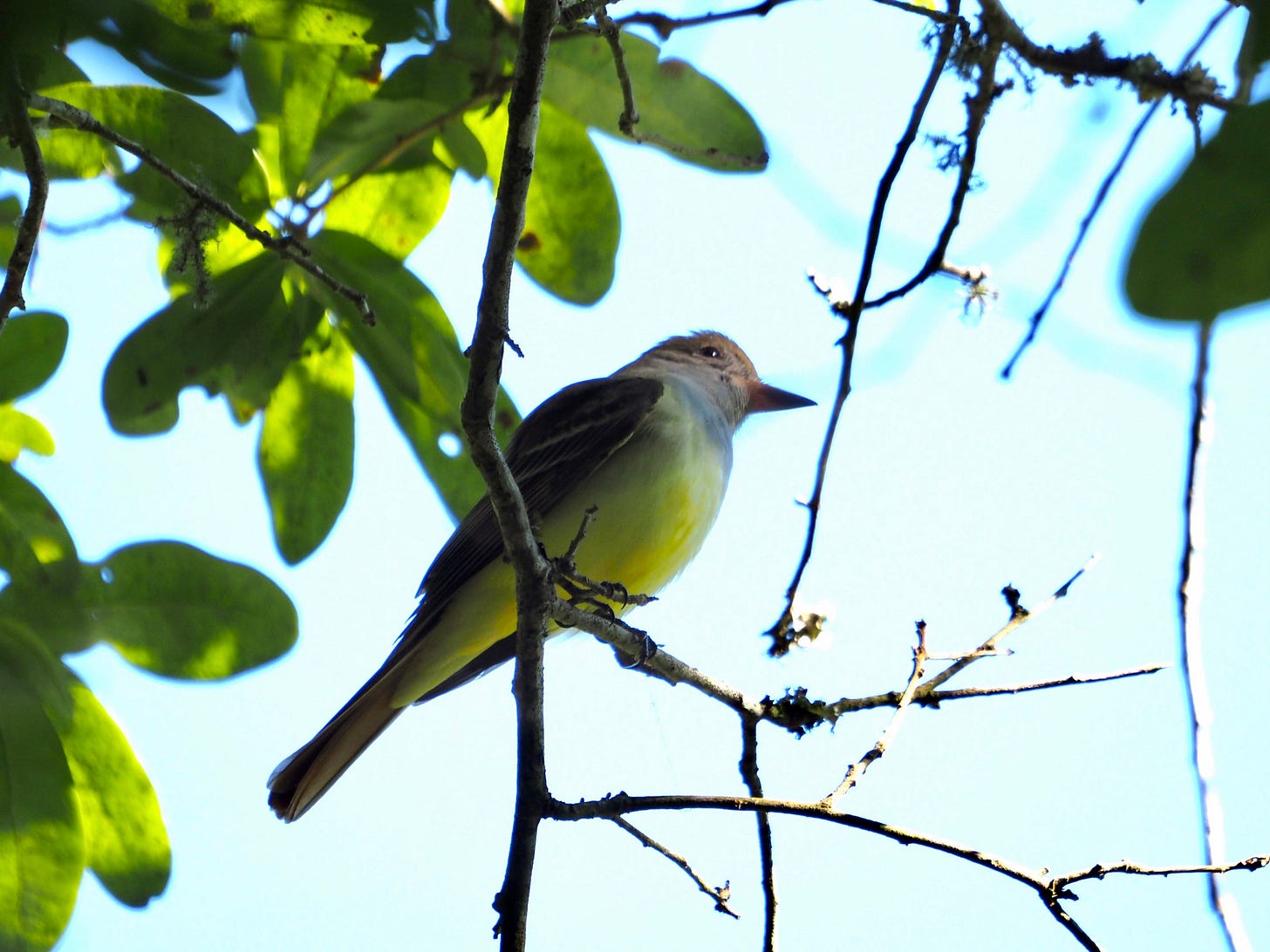
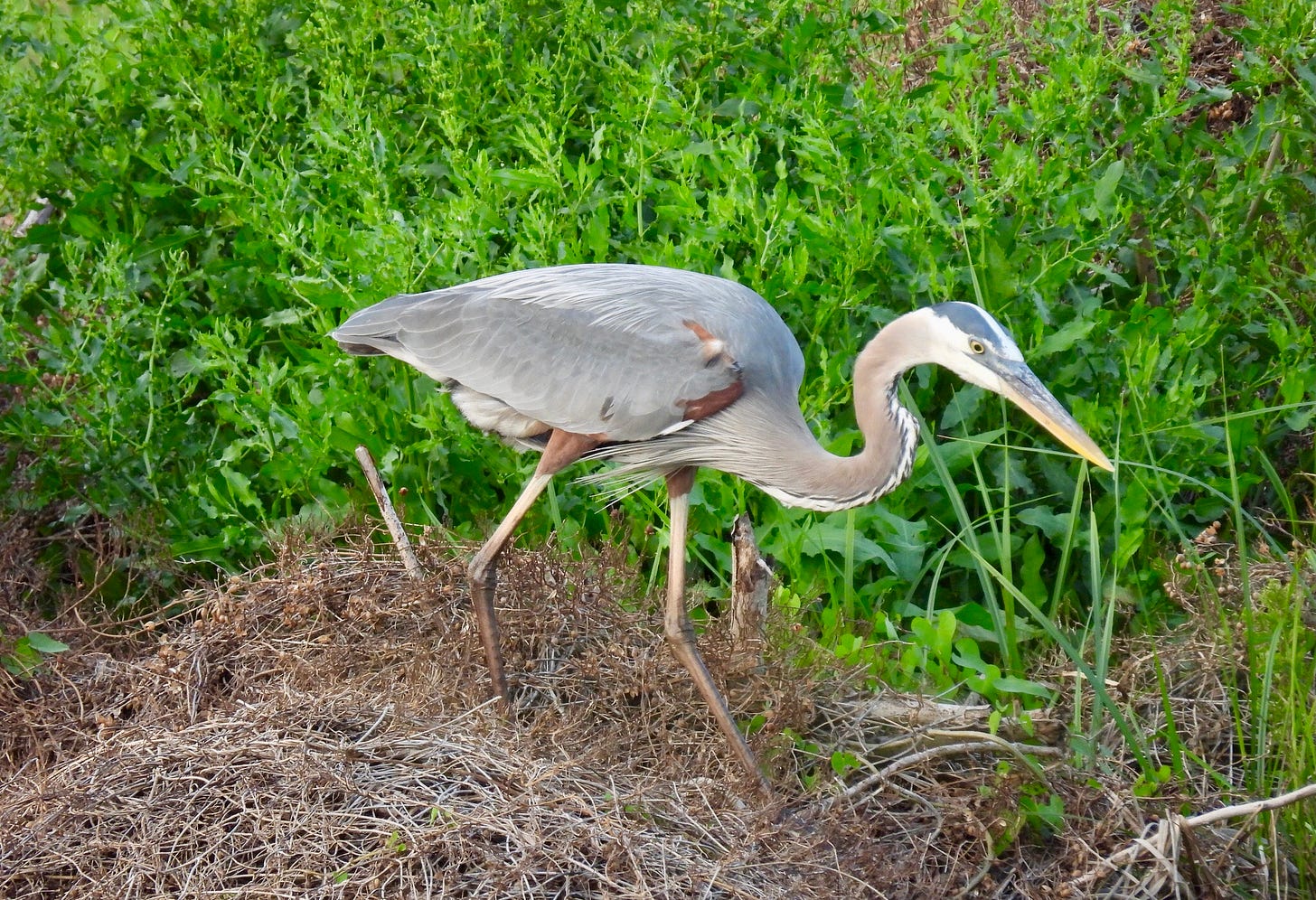


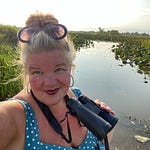
Share this post